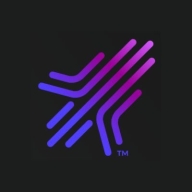

Tidal by Redwood and Rocket Zena are competing in the tech market. Users seem to lean towards Tidal for its competitive pricing and support, while Rocket Zena is chosen for its comprehensive features despite a higher cost.
Features: Tidal by Redwood provides advanced data management tools, user-friendly navigation, and competitive pricing. Rocket Zena offers a robust feature set, comprehensive analytics capabilities, and extensive customization options.
Room for Improvement: Tidal by Redwood could enhance its analytics capabilities, offer more customization options, and increase its feature set. Rocket Zena could lower its price point, simplify user navigation, and streamline its integration processes.
Ease of Deployment and Customer Service: Tidal by Redwood features a straightforward deployment model and efficient helpdesk support. Rocket Zena offers an accessible deployment process and provides a broad array of technical support options.
Pricing and ROI: Tidal by Redwood is known for its lower initial setup cost and offers solid ROI with effective data solutions. Rocket Zena has a higher setup cost but delivers significant ROI through its advanced analytics and customizable features.
| Product | Market Share (%) |
|---|---|
| Tidal by Redwood | 4.7% |
| Rocket Zena | 2.5% |
| Other | 92.8% |


| Company Size | Count |
|---|---|
| Small Business | 3 |
| Large Enterprise | 6 |
| Company Size | Count |
|---|---|
| Small Business | 3 |
| Midsize Enterprise | 6 |
| Large Enterprise | 38 |
Rocket Zena offers scheduling and dependency mapping, intuitive interface, and containerized deployment. It simplifies workflow automation, enhancing efficiency across platforms.
Rocket Zena's strengths lie in its scheduling capabilities, graphical interface, and efficient deployment. It supports users in task management with cross-platform scheduling, streamlining repetitive tasks through automation. The web-based client facilitates process visualization and workflow management, while the notification system enhances task handling. Users can manage mainframe, Linux, and Windows environments while integrating with SAP and Oracle, ensuring comprehensive automation and efficient job execution.
What are the key features of Rocket Zena?In industries like finance and manufacturing, Rocket Zena plays a vital role in scheduling batch jobs and automating file transfers. It helps adapt task scheduling to business calendars and integrate with existing platforms, ensuring a smooth workflow that meets business objectives.
Tidal Software is a leading provider of enterprise workload automation solutions that orchestrate the execution of complex workflows across systems, applications and IT environments. With a comprehensive portfolio of products and services, Tidal optimizes mission-critical business processes, increases IT cost efficiencies and satisfies legal and regulatory compliance requirements. Hundreds of customers around the world count on Tidal for modernizing their workload automation and driving their digital transformation. Tidal Software is headquartered in Chicago with offices in Houston, London, Minsk, Belarus and Chennai, India. For more information, visit tidalsoftware.com.
We monitor all Workload Automation reviews to prevent fraudulent reviews and keep review quality high. We do not post reviews by company employees or direct competitors. We validate each review for authenticity via cross-reference with LinkedIn, and personal follow-up with the reviewer when necessary.